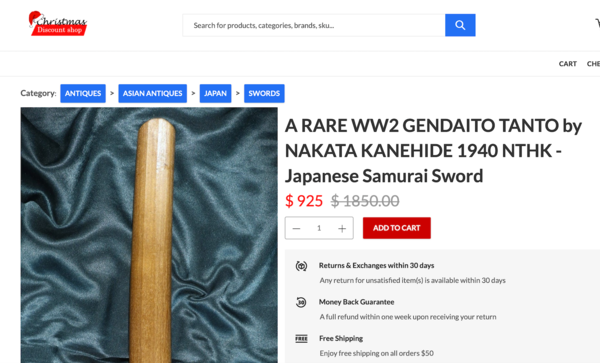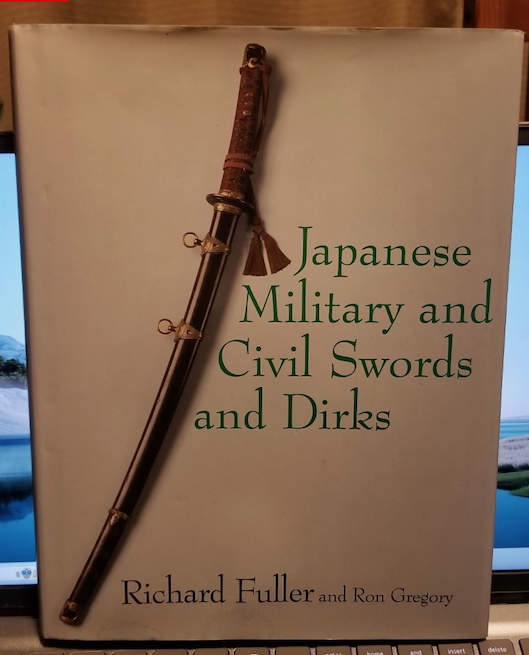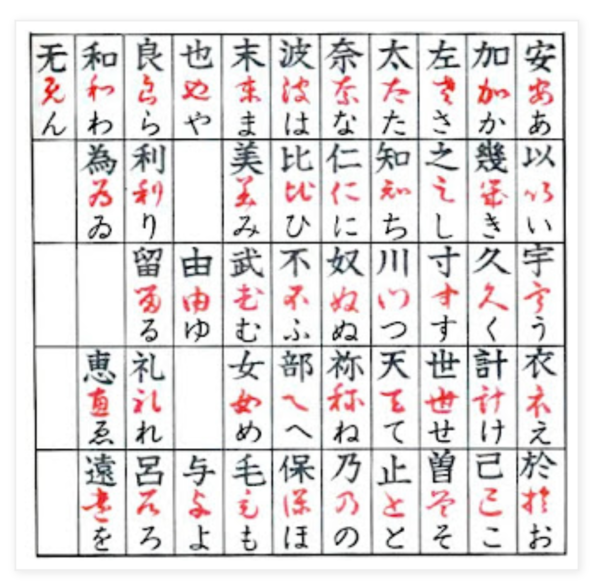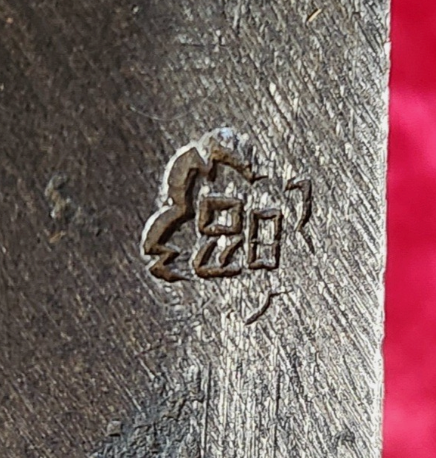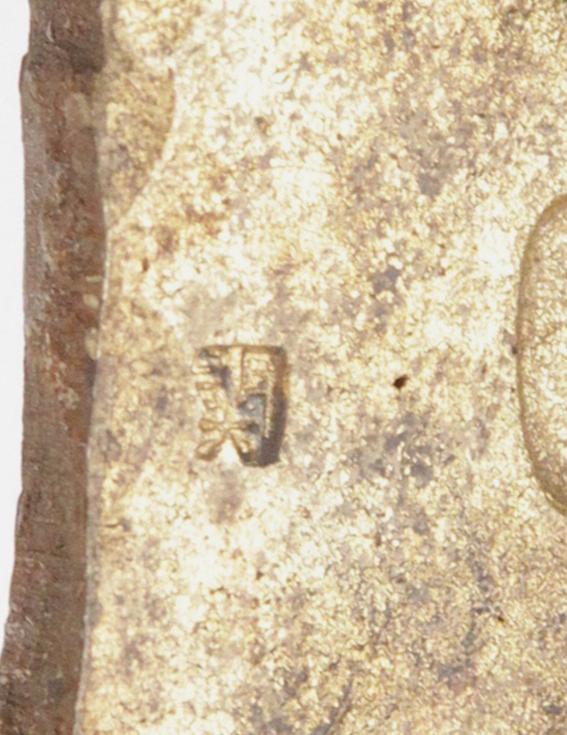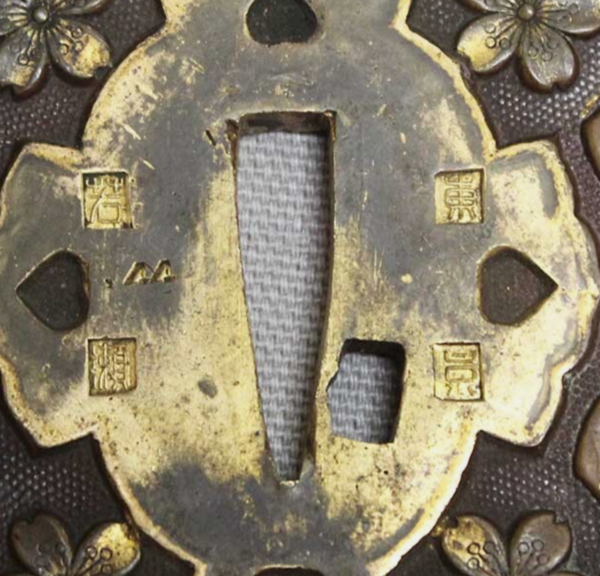
John C
Members-
Posts
2,754 -
Joined
-
Last visited
-
Days Won
18
Content Type
Profiles
Forums
Events
Store
Downloads
Gallery
Everything posted by John C
-
Hello Piers: I found this pic of a yatate that has himotoshi built in. So I suspect that would be one of the purposes of the cord - to secure the lid even without himotoshi, though I'm not sure why more examples don't have this feature. John C.
-
Scam site selling a blade I own
John C replied to John C's topic in Auctions and Online Sales or Sellers
Yes. Everything is taken directly from Eric Mollinier's site. John C. -
This scam site has been around for a long time. You click on a site (in this case skay.com.ua) and are redirected to their site then see an expensive blade at 50% off. A great deal! The problem is I already own it....wait....let me check my tanto kake......yep, still own it. https://whatdiscount.ru/product/286767908504 John C.
-
There are so many I'm not sure if this one has been posted yet. Seller is calling it a "second type." Posting two pics - one of the seller's sword and one genuine so new folks can compare the differences. https://www.ebay.com/itm/157427026200? Regards, John C.
-
Book co-authored by Nakata Kanehide on making kogatana
John C replied to John C's topic in Wanted to Buy
D: Well...I had checked this out originally, however as you said I wasn't able to "purchase from my location." It sold for about 47 dollars US. It then popped up on ebay for 138 dollars! I made the guy an offer of 115 and bit the bullet. I know I got ripped but it was the only way I was going to get the book. At least there are five of them... John C. -
That makes sense, Piers. You wouldn't want the ink pot to turn and spill. I was thinking the cord could wrap around the lid to keep it secure (I usually don't see them with a latch or lock), though the cords aren't usually blackened with ink. John C.
-
@Bruce Pennington Bruce: Not sure if you have this already or can use it, but thought I would post it anyway for others as well. This pic is from Modern Swordsmiths (Kapp). My understanding is that the lower grade tamahagane was for core steel and the higher grade was for the edge (outer skin). But I'm sure I'll get corrected on that! John C.
-
As a program specifically designed for layout (magazines, books, menus, flyers, etc) this is where it shines. Also, It's cloud-based so you can access from anywhere. PM me if you want more information or have any questions. John C.
-
This question is about how yatate were carried. I know some were used as a type of netsuke or had netsuke or separate ink inro attached to them via the small hole toward the front, however many of them that I see have just a simple string or string and bead attached. This doesn't seem as if it would serve much purpose (re: be effective) other than decorative. Other than just shoving the handle of the yatate into the obi, was there a specific way in which these were carried that involved the string and bead? John C.
-
WAY OFF TOPIC ALERT!! Sam: Are you using Adobe in-design (ID) for this project? I use it for all of my book covers and New Employee Orientation booklets I write. It can't be beat for what you are doing. You can get it by the month for just 35 bucks per. Okay...sorry for the digression. Back to type 95s.... John C.
-
Togi-mei. Kanji in the nagashi
John C replied to Scogg's topic in General Nihonto Related Discussion
Sam: Is this an older blade with a 1956 polish or a gendai blade? John C. -
Just noticed the subtitle for the Military Swords forum notes "non-traditional" blades. In light of Star Stamped gendaito, does this still apply? Certainly not a big deal, it just caught my eye. John C.
-
I have found this chart somewhat helpful and thought I would share for those who have not seen it. The chart lists the kanji in the first row, the sosho script in red in the second row, and the hiragana on which the sosho is based in the third row. Memorizing the hiragana table, in theory, should make deciphering the sosho script easier. John C.
-
- 8
-

-

-

-
Need help with this Horse Wakizashi sword identification.
John C replied to standupdann's topic in Translation Assistance
This is the only reference that Sesko has on him. But it gives you a trime frame for when he was active. MASANORI (正則), Bunkyū (文久, 1861-1864), Inaba – “Inshū Tottori-jū Masanori” (因州鳥取住正則) John C. -
-
NTHK appraiser seal identification
John C replied to AlexiG's topic in General Nihonto Related Discussion
I read their site first, however I was not sure if that was a current list or not. John C. -
NTHK appraiser seal identification
John C replied to AlexiG's topic in General Nihonto Related Discussion
Just to keep the thread going... These are from 7 Aug 2022 (Reiwa 4). Any help would be appreciated. John C. -
Well...one out of two isn't bad! John C.
-
-
-
@Bruce Pennington Do you have this yet? I searched this topic and didn't see it, however it looks familiar somehow. https://www.ebay.com/itm/405833514588? John C.
-
Thanks, Mal. I just went through that list. I did have most of them, however there were 2 newer listings I didn't have. Unfortunately, they didn't show pictures of the nakago. I list them anyway as "seller description only." Thank you very much, John C.
-
Great info, Mal. Those will be useful in developing possible lines of inquiry when a change occurs at a given time. I currently have 61 examples of his mei, including 2 tanto and 1 kogatana. And there are some definite patterns with his changes. But I'm still missing anything from that 19 year gap between 1954 and 1973. I know he was submitting swords for competition / awards during this time, however I have not found any referrences or pics of these swords as of yet. Thanks to both you and Bruce for the amazing assistance. John C.


